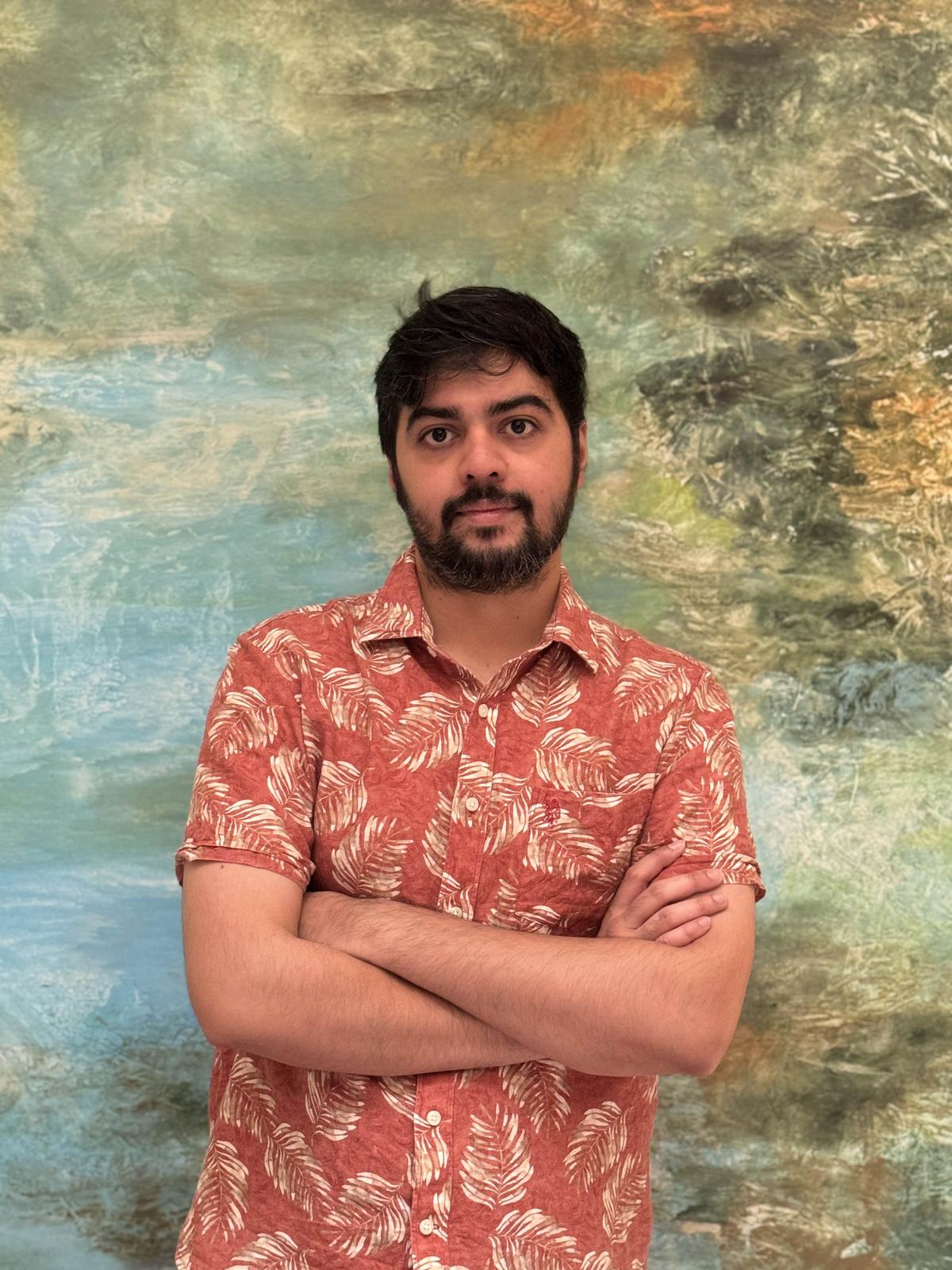Aditya Veera Venkatesh
| Photo Credit: Special Arrangement
Life seems to have come full circle for Aditya Veera Venkatesh. Growing up, the young boy was introduced to the soulful melodies of Harry Belafonte by his grandfather, who walked the hallowed halls of Harvard and Massachusetts Institute of Technology. Little did Aditya know then that this musical seed, sown by his grandfather, would one day blossom into a role where he could influence the very pinnacle of music recognition.

Fast-forward to the present: Aditya finds himself a newly inducted member of the Recording Academy, which awards the Grammys. This position carries immense prestige and responsibility and is particularly poignant for him. The body recently instituted the Best Song for Social Change award as a tribute to the legendary Harry Belafonte. Aditya, who grew up on Belafonte’s music, now has a front-row seat in shaping the future of this prestigious award named after him.
Aditya is one of the 3,900 diverse music professionals invited to join the Recording Academy, the home of the Grammy Awards. The new members are predominantly women, people of colour, and under 40, reflecting the organisation’s commitment to diversity.
His becoming a Grammy member was unconventional compared to other music industry professionals. Typically, Grammy members are full-time artists, recording engineers, or producers. He is one of the few music podcasters from India who has managed to secure a Grammy membership. “I spoke with a wide range of artists, including Grammy winners, nominees, and those aspiring to win in my podcast, Stalwarts Of Music with Aditya Veera, launched in 2021,” says Aditya from Bengaluru. “Every Academy member can recommend two deserving candidates each year. Two members who’ve been guests on my podcast, noticing my work, recommended me last year.”
As a member, he enjoys exclusive perks like attending virtual showcases featuring artists like Jacob Collier and Green Day. However, his primary role involves championing Indian artists by guiding them through the Grammy submission process.
One of the challenges Aditya has identified is the gap between Indian music and the Grammy categories. “Musicians often release music that doesn’t fit neatly into these categories,” he explains, “I believe this is mainly due to a lack of awareness in India, where we have very few Recording Academy members.”

Aditya Veera Venkatesh
| Photo Credit:
Special Arrangement
He underscores the importance of understanding the Grammy guidelines to bridge this gap. “For instance, a musician from Bangalore reached out to me, saying he had something in the synth-wave category but was unsure how to fit it into the Grammy framework. This highlights the need for Indian musicians to adapt their work to fit existing Grammy categories or potentially explore creating new ones. So, since my induction, I’ve focused on guiding deserving candidates in the music industry about the Grammy process.”
Aditya is particularly impressed by several Indian artists. Among them are Shitalchandra Kulkarni, a guitar virtuoso he compares to Joe Satriani, and Sai Abhyankar, whose catchy ‘Aasa Kuda’ has become a chartbuster. He also highlights the social impact of artists like Arivu, TM Krishna, Sanjay Subhrahmayan, and Sushin Shyam, whose music drives positive change.
Despite the abundance of talent, Aditya feels there is resistance among Indian artists to give themselves a shot at the grandest music stage. “They think, ‘Oh, wow, a Grammy? That’s impossible for me.’ But they don’t realise that their music is strong enough to compete with global superstars,” he says.
Aditya’s journey from a podcaster to a Grammy member is a testament to the power of persistence. Once a young man cold-emailing artists and publicists for his podcast, he now has some influence over the biggest musical award. “Musicians should never hesitate to try, whether it’s submitting Grammy entries or anything else,” he says. “If people put hours of effort into an idea but don’t have a vision for taking it further, I believe they’re not doing enough.”